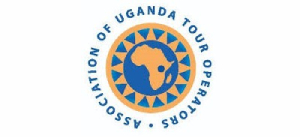How Safe Is Mozambique for Tourists?
The question on many tourists’ minds remains: How safe is Mozambique for tourists? While the country offers breathtaking landscapes and unforgettable experiences, safety concerns—ranging from petty crime to occasional political instability—can make travelers hesitant.
In this article, we’ll explore the safety landscape of Mozambique, providing practical tips and insights to help you enjoy this beautiful destination with confidence. Whether you’re dreaming of diving in the crystal-clear waters of the Bazaruto Archipelago, exploring the historic streets of Maputo, or embarking on a safari in Gorongosa National Park, understanding the risks and precautions will ensure a smooth and memorable journey.
Understanding Mozambique’s Safety Landscape

1. General Safety for Tourists
Mozambique is generally safe for tourists, especially in well-frequented areas such as beach resorts, national parks, and major cities like Maputo and Beira. However, like many travel destinations, it has its share of risks that visitors should be aware of.
-
Crime: Petty theft, such as pickpocketing and bag snatching, is the most common safety concern, particularly in crowded markets, bus stations, and urban centers. Violent crime against tourists is rare but not unheard of, especially in isolated areas.
-
Road Safety: Driving in Mozambique can be hazardous due to poor road conditions, erratic driving habits, and occasional lack of signage. Night travel is particularly discouraged.
-
Health Risks: Malaria, cholera, and other tropical diseases are present, so medical precautions are essential.
2. Regional Safety Differences
Safety levels vary across different regions:
-
Southern Mozambique (Maputo, Tofo, Bazaruto): These areas are the most tourist-friendly, with a strong police presence and well-developed hospitality sectors.
-
Central Mozambique (Beira, Gorongosa): While generally safe, some areas may have lingering instability from past conflicts.
-
Northern Mozambique (Pemba, Nampula, Niassa): This region has seen sporadic insurgent activity, particularly in Cabo Delgado, making it less advisable for casual travel.
3. Political and Security Concerns
Mozambique has faced political tensions and occasional violence, particularly in the northern Cabo Delgado province, where extremist groups have been active. While these incidents rarely affect tourist hotspots, staying informed about current events is crucial.
Essential Safety Tips for Travelers
1. Stay in Tourist-Friendly Areas
Stick to well-known destinations such as:
-
Bazaruto Archipelago (luxury resorts, diving spots)
-
Vilanculos (beachside relaxation)
-
Maputo (cosmopolitan vibe, cultural sites)
These areas have better security and infrastructure, minimizing risks.
2. Avoid Walking Alone at Night
As in many countries, walking alone after dark—especially in unfamiliar or poorly lit areas—increases vulnerability to crime. Use trusted taxi services or arrange transportation through your hotel.
3. Secure Your Belongings
-
Use anti-theft bags or money belts.
-
Avoid displaying expensive jewelry, cameras, or phones in public.
-
Keep important documents (passport, visa) in a hotel safe.
4. Be Cautious with Transportation
-
Public transport: Minibuses (chapas) can be overcrowded and unsafe; opt for private transfers where possible.
-
Self-driving: If renting a car, avoid nighttime travel and always check road conditions.
5. Health Precautions
-
Get vaccinated (yellow fever, hepatitis A, typhoid).
-
Take malaria prophylaxis and use mosquito repellent.
-
Drink bottled or purified water to avoid waterborne diseases.
6. Stay Informed
-
Check travel advisories (e.g., from your country’s foreign office).
-
Register with your embassy if staying long-term.
Why Visit Mozambique Despite the Risks?
While safety concerns exist, Mozambique’s unparalleled beauty and cultural richness make it worth the visit for cautious travelers. Here’s why:
1. Stunning Beaches and Islands
From the idyllic Quirimbas Archipelago to the coral reefs of the Bazaruto Islands, Mozambique boasts some of Africa’s most breathtaking coastal scenery.
2. Incredible Wildlife
-
Gorongosa National Park: A conservation success story with lions, elephants, and diverse birdlife.
-
Niassa Reserve: Remote and untouched wilderness.
3. Rich Culture and History
Explore Portuguese colonial architecture in Maputo, enjoy local music (marrabenta), and savor fresh seafood along the coast.
4. Warm and Welcoming People
Mozambicans are known for their hospitality, making visitors feel at home despite language barriers (Portuguese is the official language, but English is limited in rural areas).
Final Verdict: How Safe Is Mozambique for Tourists?
Mozambique is moderately safe for tourists who take precautions. While petty crime and regional instability exist, most travelers experience no major issues when staying in well-trodden areas. By staying alert, respecting local customs, and following safety guidelines, you can enjoy Mozambique’s wonders without undue stress.
Adventure Awaits—Safely!
The question “How safe is Mozambique for tourists?” doesn’t have a one-size-fits-all answer. Risks exist, but with proper planning, they can be managed effectively. If you’re seeking an off-the-beaten-path African adventure with pristine beaches, vibrant culture, and incredible wildlife, Mozambique is a rewarding destination—just travel smart!
Would you visit Mozambique? Share your thoughts in the comments!










